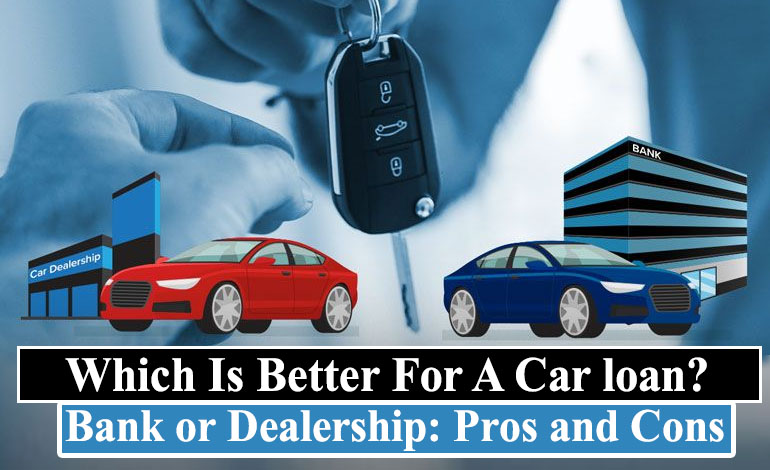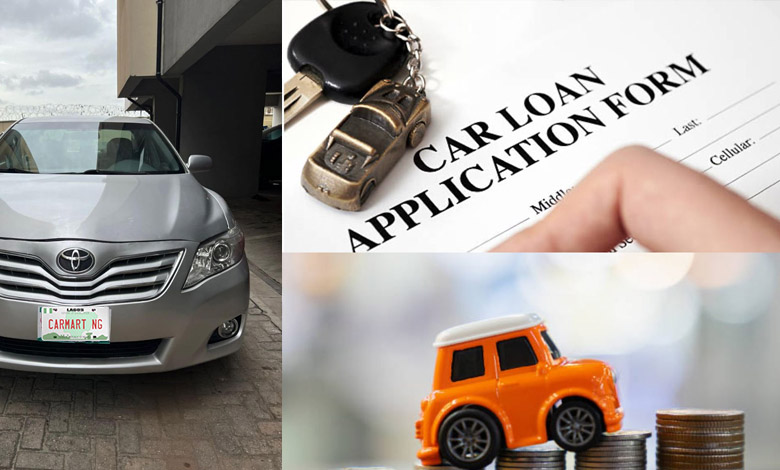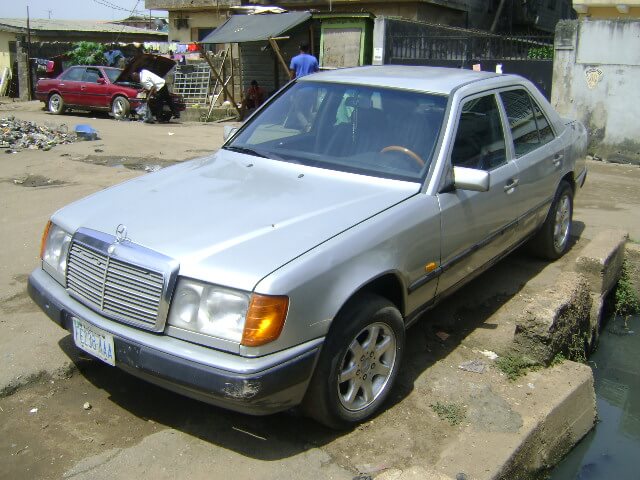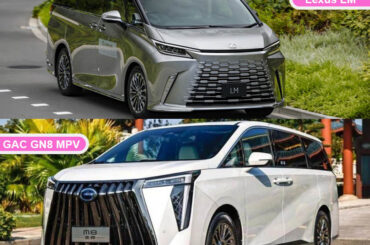You have probably been thinking about getting a car, either brand is new or second-hand. You have weighed the cost and have reached the decision that an auto loan would be better to meet your economic needs, as financing a new car is not an easy fit. You must first choose whether you will acquire auto financing straight from your bank or from the dealer when the time comes to buy your new car. This preemption has been on your mind for quite some time now. You have presumably started your research on the matter by checking out both bank and dealership loan rates, but you are yet to decide on what actually works for you.
Table of Contents

It is very important to understand some aspects before actually getting an auto loan. You must prepare yourself financially and also outweigh the risks. You must work with what works best for you. What this means is that the car that you have in mind to buy must be within your limits. The next thing to consider is that your choice must save you money and time. Another preliminary step is to know your credit score. This step is very essential because it makes or breaks your car loan. If your credit score is poor, there is a possibility you won’t be offered a car loan from either the bank or the dealership. Even if it is offered, you won’t be getting the car you want and the interest won’t change. Before anything, try and improve your credit score, and perhaps save and increase the down payment for the car you have in mind. This will aid greatly in the long run. Whether you choose financing through the bank or dealership, you need to know the advantages, disadvantages, and benefits of both.
The Pros Of Loaning From The Bank
Going straight to your bank or credit institution has the main advantage that you will probably get better interest rates. Financing through a bank or credit union can provide considerably more competitive prices because dealers typically have higher interest rates.
In addition, banks and credit unions offer a variety of products, so you have a better chance of finding a financing solution that suits your needs. If you want to save money on dealer fees and feel comfortable shopping around and comparing rates, financing through a bank can be a wonderful alternative.
You should be aware that your selections may change depending on whether you’re purchasing a new or used car. Older and lower mileage automobiles may be eligible for cheaper interest rates, from some banks and credit unions, while newer vehicles may generally qualify for lower rates. Another important thing to note is that, especially when getting a loan for a second-hand car, the model year might be a roadblock, because neither the bank nor the dealership might want to offer loans for cars that don’t have a longevity period.
Cons Of Bank Financed Vehicle Loans
Outside bank loans, however, may take longer to process and necessitate a real branch visit or in-person application submission. A low credit score may also prevent you from receiving a loan.
The processing period is one that is the ultimate drawback, and there is even a high possibility that you may not be offered the loan after the whole process. Before choosing to finance through a bank or credit union, take into account the urgency of your vehicle loan and the state of your credit.
Also, negotiation may not be possible; most banks or credit unions have fixed interest rates, so a customer must keep that in mind.
Steps Of Obtaining a Car Loan From The Bank
If bank financing is the best option for you, you must first satisfy your bank’s eligibility requirements in order to be approved for a loan. Check to see if the bank you’ve chosen will provide you with an auto loan that meets your demands because many banks have minimum and maximum loan amounts for cars.
Knowing what kind of car you want to finance at this time is crucial. Which lender is best for you will be significantly impacted by your decision. Look for a lender who provides fee-free refinancing. You can then amend your loan if your financial status changes over time without incurring additional high expenses.
Last but not least, you’ll need to request a bank quote for a car loan. You can select the period that best matches your monthly budget throughout the quote process and obtain an indication of the total cost, including interest.
The Pros Of Loaning from Dealerships
If your credit isn’t great and you don’t currently do business with any banks or credit unions, a dealership can be an excellent choice. When you apply for financing through the dealership, you can benefit from a number of advantages that simplify the procedure. By using the dealership’s financing department, you can save the time you would otherwise spend looking around for alternative lenders. Dealerships frequently provide manufacturer offers, like rebates and other financing promotions. Another added bonus is that the loan period is spread out pretty nicely, so you don’t have to rush to pay it back.
Cons Of Dealership-Financed Vehicle Loans
The first disadvantage could initially appear to be advantageous. Dealerships often offer financing periods of 60 to 72 months with alternatives of zero down payments. Although these may result in affordable monthly payments and up-front expenditures, you will ultimately pay higher interest.
Additionally, you’ll probably be given a higher interest rate. Even with the same credit score, dealership financing is more expensive than standard bank auto loans. This is because, despite the fact that you might be able to get a cheaper loan elsewhere, dealers are motivated to refer you to particular lenders.
Steps On Obtaining a Car Loan From A Dealership
To provide auto loans through their own financing division, dealerships collaborate with major banks, online lenders, and credit unions. This means that you will be able to finance your car through a transaction the dealership has arranged with a lender, and the dealer will handle the bulk of the work.
You will be directed to the dealership’s financing department to complete the transaction once your dealership has approved your request for financing. Depending on the dealership, this procedure may vary, but you will probably need to complete a few papers and provide documentation of your assets and income.
The finance manager at the dealership or a representative from the dealership’s auto lender will be able to assist you in reviewing the loan terms and completing the transaction once you have been accepted.
Which Is The Better Choice?

When it comes down to deciding which you want to go with, you will have to stick to your preference, keeping in mind the pros and cons of each and what you can actually afford before even starting the process. For example, banks and credit unions have pre-qualification processes, which are normally available online. So, you should have to get a general idea of how much you can borrow.
If you require a higher loan amount, a low-interest rate, or a repayment term of five years or fewer, borrowing money from a bank might be a viable choice.
If you want to skip the hassle of looking around for car financing, financing your car directly through the dealership is the best choice. If you have bad credit, financing through the dealership might be more accessible because it is also simpler to qualify for.
Frequently Asked Questions
What is the tenure for car loans?
The usual tenure for car loans ranges between 1 and 5 years. But if you have a high monthly instalment, it tends to be shorter, but if the reverse is the case, the tenure will be longer.
Why was my car loan application rejected?
Usually, this happens when you have a bad credit score. A lot of factors come into play before your loan application can be approved; your income is very important. If there is a possibility that you can’t meet the monthly instalments, your application will be rejected. It is crucial to know your credit score and try to improve it before you start the process.
Have 1 million naira and above to Buy or Sell Cars In Nigeria? Check carlots.ng
All rights reserved. Reproduction, publication, broadcasting, rewriting, or redistribution of this material and other digital content on carmart.ng is strictly prohibited without prior express written permission from Carmart Nigeria - Contact: [email protected]










1 Comment
I need a Hummer bus hire purchase